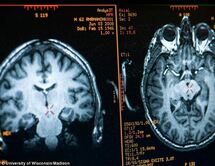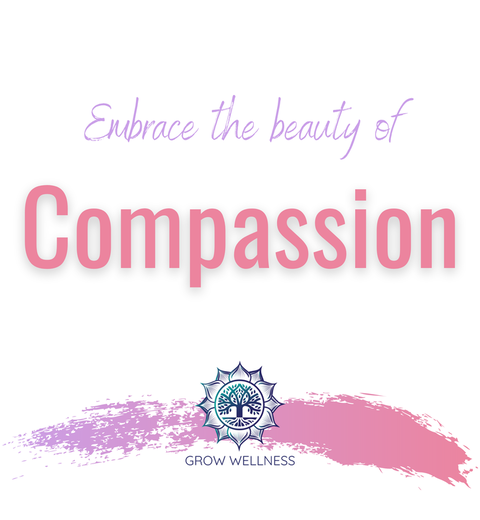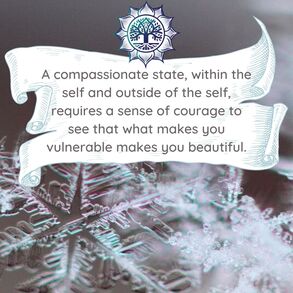"Compassion is in our blood" -The Dalai Lama Compassion is truly a phenomenal and miraculous entity. When embraced as a core foundation of how we navigate life, compassion positively impacts our brain function and thus the quality of our reality! Some may see compassion as an emotion, others a religious/spiritual application, while positive psychology scholars see it as a strength for thriving and Buddhists see it as a way of life. So, how do you see it? What does compassion mean to you? "Compassion is in our blood," the Dalai Lama says. Living in a state of compassion is one of the Buddhist sublime states. After a meeting with the Dalai Lama, neuroscientist, Richard Davidson, stopped studying anxiety and depression pathologies and instead began researching and examining compassion and loving-kindness. He was fascinated with his findings, concluding that "compassion is a kind of state that involves the body in a major way." Studies and research shows that engaging in a compassionate state, specifically through compassion meditation, activates the anterior insula part of the brain, an important center where brain-body coordination takes place. During this state you find high-amplitude gamma-oscillations in the brain, which increase the brain's capacity for change, learning and resilience. In energy medicine, the Anahata heart chakra represents love and compassion for ourselves and others. So, a balanced heart space is lovingly accepting the self and feeling compassionate to others in spite of the pain or sadness in our lives. In western medicine, compassion-focused therapy (cft) is a life changing method of treatment for mental illness that helps patients gain control over self-criticism and self-doubt. Compassion is has proven to be a miraculous therapeutic tool of wellness, spiritually, physically and mentally in all schools of thought around the world! Practicing CompassionCompassion is a heartfelt wish that all beings be free from suffering and the causes of suffering. Consciously practicing empathy towards the self and others leads to compassion and compassionate states of being. 1. Generosity Showing kindness and generosity to help those who need us is a powerful way to practice compassion. "There are systematic changes in the brain that are associate with acts of generosity," Davidson says. Generosity when you are able is a way to engage in the energetic homeostasis of our world and to help others. When we put out good intentions and energy into the universe, it feels good because it is good. Just like a tree will share its nutrients if it's neighbor tree is sick, so will it receive the same in return when its ecosystem is thriving again. Give where you can, and when in need, receive as well! 2. Self-examination Growing and evolving through compassion involves engaging in a deep rigorous compassionate process of self-examination which lends clarity to your mind and heart. To access and practice compassion, take inventory of your heart space and engage in the process of making peace with anything that may be holding you back from the full power of compassion. Ask yourself: What prevents me from feeling love and compassion? This process is largely highlighted in yoga philosophy, through practicing the niyamas and yamas, which are methods of how to conduct the self within the self and conduct yourself within your environment. 3. Embody Courage Why do some people feel worthy of compassion and love while others don't? The answer to this question lies in the positive psychology strength of courage. To expand the consciousness through compassion, courage to be imperfect has to be practiced. It involves embracing vulnerability and being compassionate to the self. Have courage to ask yourself hard questions, and have courage to confront and heal whatever it is that is holding you back. A compassionate state, within the self and outside of the self, requires a sense of courage to see that what makes you vulnerable makes you beautiful. 4. Gratitude Practice the power of GRATITUDE! Through gratitude and a grateful heart, embracing compassion towards the self and all beings comes naturally! For more education on the power of gratitude and how to practice, check out our blog article Is Gratitude a Super Power ! 5. Empathy Compassion is born from empathy. Empathy is about taking a moment to put yourself in someone else's shoes, to listen and try to genuinely understand where they are coming from. Once you access empathy for all beings, you can ignite your inner compassion and send them loving, compassionate energy. Tied into empathy is the concept of judgment. Judging the self or others harshly can be a heavy burden and a dark habit, it is a tendency of the ego. When we put the judgment down and pick of the torch of empathy and compassion, it is like a new power within is lit and liberation pours over the self. 6. LOVE See through a lens of love. Put on your love glasses, ESPECIALLY when you don't want to! Try to see all beings and situations with love. This ties in with the practicing empathy and setting the self free through non-judgment. 7. Meditation Many of the studies mentioned above were done on groups after practicing compassion meditations and on spiritual monks who actively live compassionately on a daily basis. Check out the compassion meditation below! COMPassion MeditationBegin by breathing deeply and using the breath to access the sensation and sentiment of compassion. Use compassion to clear your mind of worry. Become aware of a loved one, some who you love deeply and notice how this love feels in your heart. Notice any sensations within the heart space while love is present. Allow yourself to sincerely wish them well, even saying "May you be free, may you be free from suffering, may you be happy, truly truly happy, may you be free." Feel compassion pour from the self to that person, visualizing extending a golden light from your heart to that person. Repeat this practice with a neutral person (acquaintance) Repeat with someone with whom you have difficulty in your life (an enemy perhaps) Repeat this towards all beings of the universe Repeat this towards the self Allow compassion to envelope your entire body and consciousness. Deep breaths as you send compassion to all beings, to the self and to the world. Mantra Chant Chant aloud, feeling the vibration of your voice empower the mantra through your mind and body "YAM" (YAHM) Want to kick up your meditation practice and see how it can affect your life? Join us for our Heavily Meditated class on Wednesdays, live-streamed for access wherever you are! To reserve your spot, click HERE Can't make a saturday class? We have meditations on demand! Explore HERE Sources and Medical Journals:
Shonin, E., Van Gordon, W., Compare, A. et al. Buddhist-Derived Loving-Kindness and Compassion Meditation for the Treatment of Psychopathology: a Systematic Review. Mindfulness 6, 1161–1180 (2015). https://doi.org/10.1007/s12671-014-0368-1 Lutz A, Brefczynski-Lewis J, Johnstone T, Davidson RJ (2008) Regulation of the Neural Circuitry of Emotion by Compassion Meditation: Effects of Meditative Expertise. PLoS ONE 3(3): e1897. https://doi.org/10.1371/journal.pone.0001897 R. J. Davidson and A. Lutz, "Buddha's Brain: Neuroplasticity and Meditation [In the Spotlight]," in IEEE Signal Processing Magazine, vol. 25, no. 1, pp. 176-174, 2008, doi: 10.1109/MSP.2008.4431873.
1 Comment
|
Details
Archives
March 2024
Categories |


 RSS Feed
RSS Feed